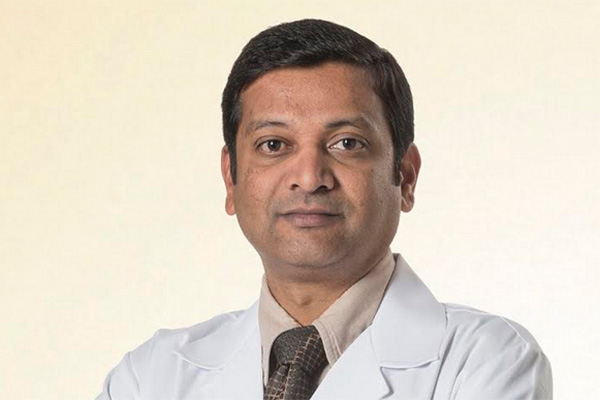
Dr Malmma: UV rays are at their strongest between
10am and 2pm of the day
Tips to counteract the effects of the summer sun
DUBAI, May 25, 2017
By Dr Prakash Malmma
Summer is well and truly here and what better motivation to use sunscreen than having youthful skin. Add to this the reduced risk of cancers. Truth is, people have tried several methods to keep aging at bay but as we get older our skin starts to wrinkle and age. But you can look on the bright side and take preventive measures to avoid early aging. Sunscreen is one of them.
So what exactly are sunscreens?
Sunscreens are skin care products with different active ingredients that help prevent the sun’s ultraviolet (UV) radiation by either absorbing the UV radiation or preventing the radiation from damaging the deep layers of the skin.
Basically, Ultraviolet (UV) damages the human skin which leads to premature skin aging. There are both short wave and long wave rays which can eventually lead to wrinkles, leathering, sagging and sometimes skin cancers. UV rays are at their strongest between 10am and 2pm of the day; so that’s the time to wear protection.
Choosing the best sunscreen for you!
When choosing or buying a sunscreen, it is always best to know first what you should be looking for. The higher the SPF level of the sunscreen means you’ll get longer protection. Bear in mind though that no sunscreen regardless of the strength or SPF level should be expected to stay effective longer than two hours without reapplication.
Take note that it is not just the SPF number you have to consider, you also have to look for ingredients such as PABA, salicylates, cinnamates for UVB absorption, benzophenones, for shorter wavelength, UVA and avobenzene, ecamsule, titanium dioxide or zinc oxide for the remaining UVA spectrum. At least one of the active ingredients should be present from each group.
Common myths about sunscreens
Wearing sunscreens can cause vitamin D deficiency
This is the opinion of a few dermatologists but there’s no conclusive evidence to prove it. In any case you can always avail of dietary supplements like eggs, salmon, almonds, sunflower seeds, orange juice, etc.
People with skin allergies or sensitive skin should not use it.
Wrong again! In fact, sunscreen is mandatory for such people, else skin conditions like rosacea may develop. But for sensitive skin people, choose a sunblock with titanium dioxide or zinc oxide instead of chemicals like PABA, dioxybenzone, oxybenzone, or sulisobenzone. Definitely avoid sunscreens with alcohol, fragrances or preservatives.
Children and women who stay indoors do not require sunscreens.
UV rays reflection on window glasses, floor tiles, glass doors, etc. can also pose a threat to your skin. Unless you are locked up in a dark room there is always going to be an element of potentially harmful UV rays around you.
SPF 100 = 100 per cent Sun Protection?
The SPF (Sun Protection Factor) strength is an important consideration. To give you an idea, SFP 15 filters out approximately 93 per cent of all incoming UVB rays, and SPF 30 filters about 97 per cent of the UVB rays. This means that you can stay out in the sun 15 times or 30 times without burning than you could without having a sunscreen.
So what’s the most effective way to use a sunscreen?
Remember that sunscreens wear off!
Sunscreens are very effective when used properly so following these few key guidelines will guarantee you the best protection.
Firstly, apply the sunscreen at least 20 to 30 minutes before you go outdoors. Re-apply sunscreen every 2 hours while you are outdoors, even if the product is labelled ‘all-day’. Make sure you cover all exposed areas, including your ears, lips, face, neck and the back of your hands. Don’t skimp; make sure to apply a generous layer. Smooth it on rather than rub it in.
Sunscreen does wonders for your skin. However it is always best to consult your doctor or pharmacist before using them. Tell them if you have any allergic reactions and what other topical medications you are using to avoid any side effects. Also keep it in a safe place, and away from the reach of children.
Dr Prakash Malmma is a dermatologist at Kaya Skin Clinic in Dubai, UAE.







